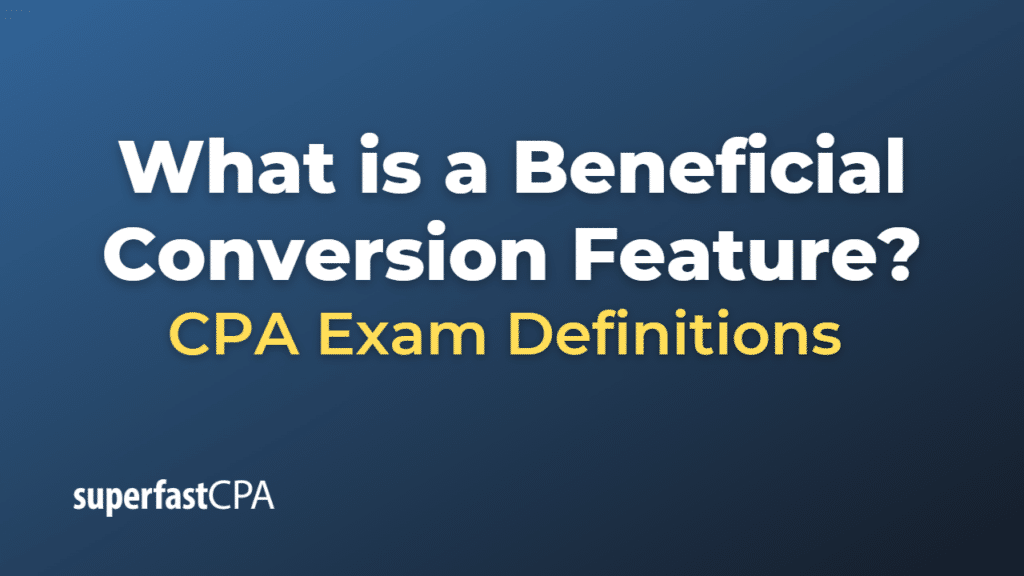Beneficial Conversion Feature
A beneficial conversion feature (BCF) is a financial term used to describe a specific characteristic of convertible securities, such as convertible preferred stock or convertible bonds, that allows the holder to convert these securities into common shares at a conversion rate that is more favorable than the prevailing market price. In other words, the conversion feature is considered beneficial when the conversion price is lower than the market price of the common shares at the time the convertible security is issued.
The presence of a beneficial conversion feature can make convertible securities more attractive to investors, as it provides them with the opportunity to benefit from potential appreciation in the value of the underlying common shares. If the market price of the common shares increases above the conversion price, the investor can convert the convertible securities into common shares and potentially realize a gain.
In accounting, a beneficial conversion feature is considered an embedded derivative and can affect the valuation and classification of the convertible security. Under U.S. Generally Accepted Accounting Principles (GAAP), when a beneficial conversion feature exists, the issuer is required to recognize the intrinsic value of the BCF as a discount on the convertible security and amortize it over the life of the security. This accounting treatment can impact the issuer’s financial statements and result in increased expenses and a reduction in equity.
Example of a Beneficial Conversion Feature
Let’s consider a fictional company called “TechGrowth Inc.” that decides to issue convertible bonds to raise capital. Each convertible bond has a face value of $1,000 and can be converted into common shares of TechGrowth Inc. at the investor’s discretion.
- TechGrowth Inc. sets the conversion price: The company decides that each bond can be converted into 50 common shares. This means that the conversion price is $20 per share ($1,000 face value / 50 shares).
- The presence of a beneficial conversion feature (BCF): At the time of issuing the convertible bonds, the market price of TechGrowth Inc.’s common shares is $25 per share. Because the conversion price of $20 per share is lower than the current market price, the convertible bonds have a beneficial conversion feature.
- Calculating the intrinsic value of the BCF: The intrinsic value of the beneficial conversion feature can be calculated as the difference between the market price and the conversion price, multiplied by the number of shares obtained upon conversion. In this case, the intrinsic value is ($25 – $20) * 50 shares = $250.
- Accounting for the BCF: Under U.S. GAAP, TechGrowth Inc. is required to recognize the intrinsic value of the BCF as a discount on the convertible bonds. The company would record the $1,000 face value convertible bond as $750 ($1,000 – $250) and the $250 BCF as a discount. The discount would then be amortized as interest expense over the life of the convertible bond, impacting the company’s financial statements.
In this example, the beneficial conversion feature makes the convertible bonds more attractive to investors, as they have the potential to benefit from an increase in the value of TechGrowth Inc.’s common shares. At the same time, the company must account for the BCF according to the applicable accounting standards, which can affect its reported financial performance.













